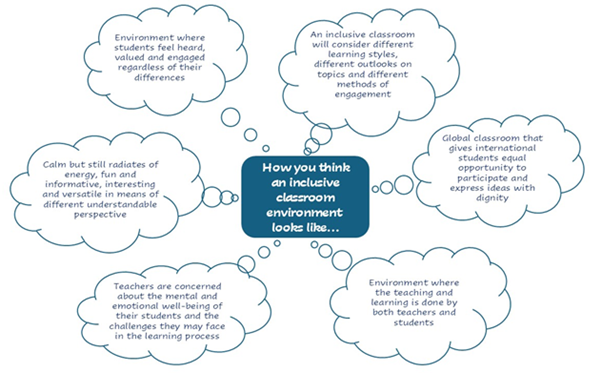11 January 2024
All Stories are Different - Motivation for the “Standing Out in the Crowd: A Framework for Inclusive and Effective Student Engagement” QAA Global Collaborative Enhancement Project

Authors
Professor Nadia Gulko
University of Lincoln (Project Lead)
ngulko@lincoln.ac.uk
Associate Professor Lorraine Erica Derbyshire
University of Cape Town (Co-Investigator)
erica.derbyshire@uct.ac.za
What does an inclusive student engagement mean for students? This was one of the questions that underlaid the QAA-funded Collaborative Enhancement Project that Professor Nadia Gulko, University of Lincoln, and Associate Professor Lorraine Erica Derbyshire, University of Cape Town, introduce in this blog post.
Our project team* was brought together from twelve institutions from across nine countries: Australia (Monash University); Belgium (Ghent University); Canada (Lakehead University); Ghana (University of Cape Coast); India (Sri Sri University); Malaysia (Monash University); South Africa (North-West University, University of Cape Town); UK (Queen Mary University of London, University of Greenwich, University of Lincoln (lead)); USA (Northern Illinois University).
Student engagement is a critical factor in teaching excellence, contributing to business students' ability to become professional value creators for business and society. Higher Education Institutions’ (HEIs) efficacy in delivering on their mandate will depend on their ability to innovate, enhance the student learning experience, and adopt effective student engagement methods amid the ever-evolving complex business environment. All stakeholders (students, staff, and the institution) in the learning process have a contribution to make in enhancing student engagement. In 2024, our research project embarked on a journey to develop a framework for inclusive and effective student engagement.
Student voice has been a central focus of this project, working actively with students in different countries across different stages of the project. The participating students overwhelmingly expressed their satisfaction at being able to contribute to our project.
It's important for students to feel heard and supported, and I believe that fostering open communication can greatly enhance the classroom experience. I hope my feedback can contribute to positive changes in future classes.
Student respondent
Student research assistants also contribute to data analysis, adding considerable value to the research results and collaborative experiences within the team.
Working as a research assistant on this project is not only exposing me to what my fellow students think around the subject of student engagement but also, importantly, it provides me with the opportunity to understand how faculty members interpret students' 'signals' on matters of exclusion and inclusion in the higher education context.
Research assistant
The literature review reveals that student engagement is a multifaceted and complex concept that has garnered significant attention across various perspectives, yet no universal definition exists. Enhancing our understanding of the concept emanates from exploring behavioural, cognitive, psychological, socio-cultural, and institutional aspects. Lack of inclusivity is echoed as a common barrier to effective student engagement. Overcoming common barriers is essential for effective student engagement and ensuring all students have equal opportunities to succeed. Efforts should also be directed toward the curriculum design, and constructive alignment between learning outcomes and student engagement. For more on barriers to inclusivity and inclusive ways of engagement see our first project output – a Literature Review report.
During the first phase of our empirical (cross-country survey) work we aim to define the meaning of inclusive student engagement in the context of teaching excellence.
Student inclusivity in class I think is key in building us for greater responsibilities in the future.
Student respondent
The preliminary data collected across nine countries is fascinating as it reveals diverse perceptions of what an inclusive student environment looks like. Some students associate the concept with teaching pedagogy, others with engagement between educator and students, and others with personal characteristics of educators. The following are fragments of student voices collected from various countries.

The second phase in our journey includes conceptualising a multi-dimensional framework of classroom engagement from the student voices based on the cross-country surveys and focus groups with students across five continents. This will enable a transformative and inclusive dialogue with educators globally in the third phase, with the aim of developing an open-source toolkit and learning videos on inclusive student engagement on a global scale.
Building on prior QAA projects, it is our hope that this global project will help all of us to think about what an inclusive student engagement means for students and will empower educators to collectively reflect on our teaching practices and classroom approaches.
We welcome participation and contributions from across the sector in the UK and other countries.

To partake in the upcoming focus group discussions in Spring 2025 or subscribe to future educational webinars where we will be sharing insights from the project, follow the link to register your interest.
For further information about the project, please visit the project webpage.
*The project team of our QAA Collaborative Enhancement Project includes:
Lead Institution:

